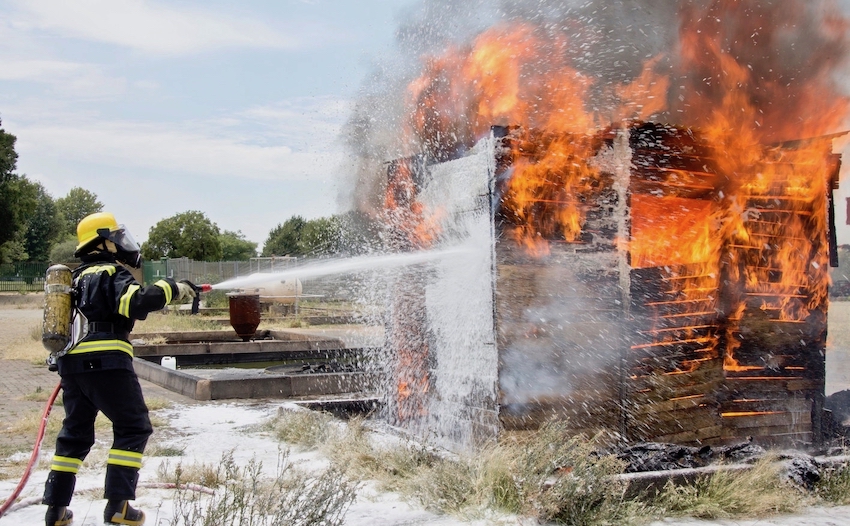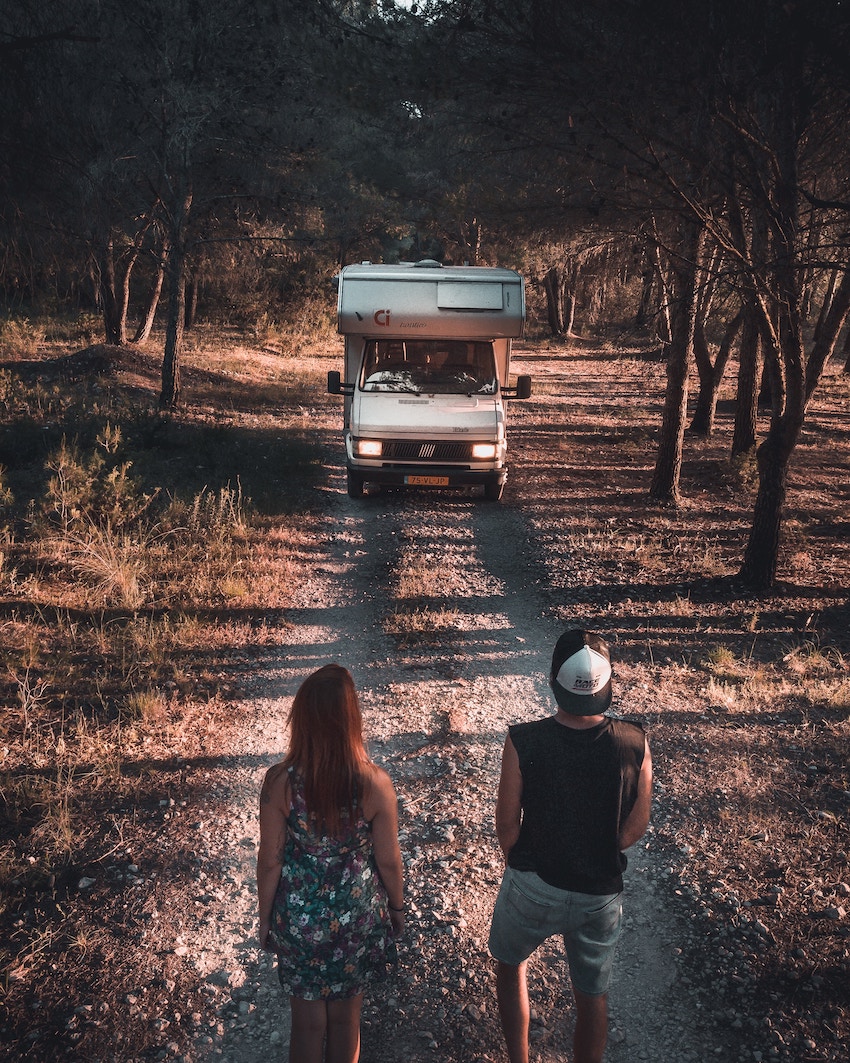

Must-read for beginners! 10 important pointers when renting your first RV
26歳からキャンピングカーに乗りはじめて8年目!バンライフ・車中泊について、初心者の頃に知っておきたかった情報や知識を記事で発信しています。平日はスタートアップを経営しつつ、週末は全国へ出かけてます。愛車はモビラボで製造しているバンコン「SAny.VAN」。海の目の前で朝目覚めるのが好きです。
Finally, you're going on your first car camping trip today! You’ve already booked your camping spot and you're just waiting on everyone else to arrive before hitting the road...
Hold on a second! Before you step on the gas, realize that a fun camping trip could turn into a nightmare if you're not careful as shown by recent news about an accident involving an RV. Even if you've been driving for a long time already, you should still treat an RV as a different vehicle from a car (because it is!) and adjust your driving accordingly. Now the question now is What are these things I have to pay attention to?

Not to worry because that's what this article is all about. Without further ado, here are the 10 important pointers when driving an RV to ensure only the best experience possible!
① Be extra careful when making a turn!
Campers or RVs are heavy. If the average car weighs about 1 to 1.5 tons, the average RV weighs from 2 to 4. That's twice the mass and hence twice the required force to overcome the inertia. That also means it takes longer time to start moving, drive around a curve, stop, and make left and right turns, especially in streets crowded with pedestrians. So, always double check your sides and blind spots while driving and avoid accidents when turning!

② Avoid narrow and low-clearance roads!
Campers and RVs are huge. Realize that there are roads that are too narrow and dangerous for large vehicles. Accidents like wheels dropping off the pavement or sideswiping an oncoming vehicle on a narrow road are pretty common occurrences with vans, so always drive on wide roads as much as possible.
There are also instances when the driver is careful about his sides but neglects his vertical clearance and get in an overhead collision! Yup. RVs are much higher than ordinary cars so be careful not to route your way into low-clearance entryways, like indoor parking lots and tunnels.
③ Beware of crosswinds on highways and bridges!
Being a huge vehicle comes with a price, and that's susceptibility to strong winds. Normal cars are designed to be wind resistant, but campers and RV, in particular, are designed to have large interiors so their rectangular shape is a punching bag for wind on all sides. Sometimes you lose steering control and get pushed around by wind gusts when a truck overtakes you or when you're passing a highway or bridge with no windbreakers, so it's absolutely crucial to keep your speed low when driving.

④ No sudden stops, speed-ups, and turns!
For the same reasons as above, RVs and campers are really meant for (relatively) slow driving. Of course, this also means you should avoid sudden stops, sudden turns, or sudden acceleration. Camper rollover accidents are usually caused by sudden turns on a curve (see no.1) or losing control of the steering wheel during strong crosswinds (see no. 3). Not to mention, sudden movements are a no-no for the people and stuff on board.
⑤ Make everyone wear a seatbelt while driving!
Especially if you're a first-time RV driver, it's almost inevitable that you'll accidentally drive fast at some point no matter how careful you are. That's more than enough of a reason to make sure that no living body on board—not just the passenger seat—is buckle free. Not to mention being on the road without a seatbelt is illegal!

⑥ Keep within the carrying capacity!
Before you start worrying about the things above, you should first make sure you're within the carrying capacity of your camper. Don't invite your whole neighborhood or overstuff the camper or RV, especially with heavy equipment. The inside usually looks more spacious than what’s required for the maximum capacity of passengers so it's very easy to “over-invite” people or stuff in more luggage. However, remember that campers and RVs are already heavy to begin with even when they're empty so you'd be putting too much stress on your tires if you exceeded the weight capacity. And you don't want to bust your tires on the road and put everyone's lives in danger. Always err on the side of safety.
⑦ Pack winter gear no matter the season!
Think you're ready to go? No, you're not. Make sure you have winter clothes and gear with you. Warm clothes are the last thing on people's minds since it's fairly warm inside the vehicle, but don't forget that you're still technically sleeping "outdoors." If you ran out of gas or weren't able to park at a powered station, you might not be able to sleep with proper heating. For that reason, it's good preparation to pack warm clothes with you at all times, just in case.

⑧ Always secure your camper when you leave or during sleep time!
I know you're all pumped up about the new sceneries you see and discover, and you may let your guard down about safety. But here are three things to remember: 1) never ever forget that you're carrying a very expensive toy (your camper) so protect it with all your might; 2) always lock the doors and windows when you go to sleep or leave it unattended; and 3) set up some kind of security system.
⑨ You can't just camp anywhere!

Notice that there are designated areas only where you can park or go camping. In particular, a lot of people mistake parking at roadside stations overnight. Although it's okay to rest for a few hours there, it's generally illegal unless otherwise indicated. So, be sure to research, book, and pay for parking reservations ahead of time in Japan. You should totally look into Carstay booking app for smooth sailing—with the added bonus of camping insurance! Highly recommended for that coveted vanlife experience♪
⑩ Put the brakes on idling, loud noises, and littering!
Always remember the trinity of camping don'ts: don't let your engine idle, don't make loud noises, and don't leave your trash behind. There seems to be a lot of people who can't follow these simple rules. Some let their engines idle while staying overnight at roadside stations or convenience stores, and make a lot of noise and dump their garbage in free campgrounds. This lack of discipline has damaged a few camping facilities already, so please, please follow the rules at the campground (beside the trinity of don’ts) to not inconvenience other people.
When you've reached here, you're all ready to go car camping!

What else are you waiting for? If you think this is a lot of rules, just think of them as tips for making the most of your car camping experience! Always put safety first and let's all have a blast as we go on our epic vanlife journey!
26歳からキャンピングカーに乗りはじめて8年目!バンライフ・車中泊について、初心者の頃に知っておきたかった情報や知識を記事で発信しています。平日はスタートアップを経営しつつ、週末は全国へ出かけてます。愛車はモビラボで製造しているバンコン「SAny.VAN」。海の目の前で朝目覚めるのが好きです。


















